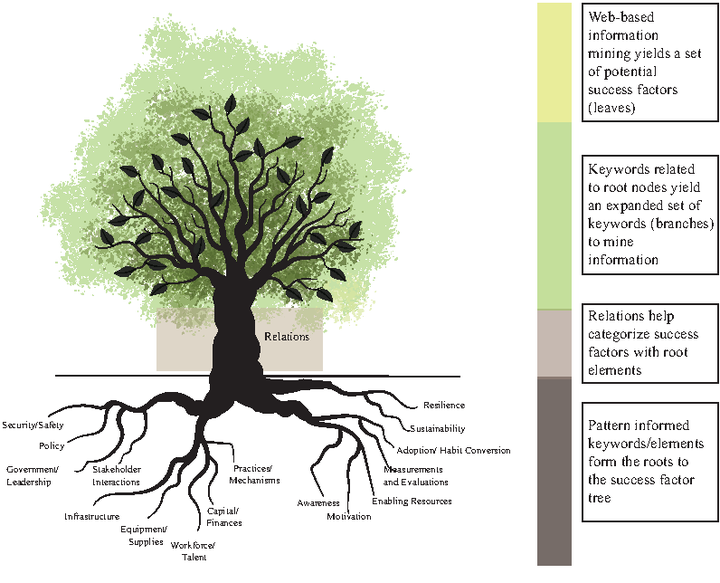Framing the Intractable -- Comprehensive Success Factor Analysis for Grand Challenges

Abstract
Complex socio-technical challenges, often referred to as grand challenges or wicked problems, lack a robust method for their holistic framing. Current approaches to framing fall into two primary categories. On one hand, models grounded in reductionist perspectives tend to oversimplify the problems and thus fall short of capturing the true complexity that must be understood to make tangible progress. On the other, notable attempts to achieve holism are more effective at incorporating contextual nuance, but still lack systematicity to identify and drive effective inclusion of critical issues, and also tend to suffer from the inherent bias of select expert input. In this article, we report on an extension of holistic problem framing techniques called comprehensive success factor analysis (CSFA) that makes-sense of web-mined information reflective of both expert and general population perspectives as well as pattern-informed ontological knowledge organization structure, to yield ‘richer pictures’ of grand challenges. This method has been developed and refined over a seven-year period by application to a variety of distinct socio-technical challenges, and emphasizes that framing complex problems requires one to embrace multiple levels of abstraction, a plurality of perspectives, careful contextualization, and an overarching system view. The CSFA method results in ‘success factor trees’ that are more comprehensive than seen otherwise and present a holistic view of the essential factors that need to be considered when engaging in large scale socio-technical problems. The success factor trees provide common grounds for meaningful collaboration and discourse on grand challenges, facilitate more informed resource allocation decisions, and provide guidance for designing solutions through careful consideration of system factors that are not always apparent. The paper illustrates CSFA applied to the challenge of ‘food security for a nation in a low- to middle-income country context’ to ascertain the value of the approach and finds that it results in a robust view of the challenge that greatly exceeds perspectives arrived at in the literature using current framing methods, on dimensions of scope, levels of abstraction, plurality, and context detail.